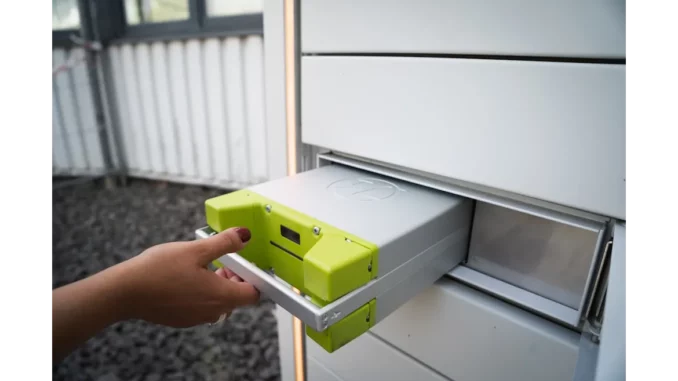
Summary
Binghamton Rises as National Battery Innovation Hub Amidst Ambitious Energy Initiatives
As Battery Week commences in Binghamton, New York, the town is brimming with anticipation and ambition. This pivotal event highlights the region’s rapid transformation into a national centre for battery technology innovation and manufacturing. Emily Foster, a research associate at Binghamton University, articulates the enthusiasm and progress of the New Energy New York (NENY) initiative, underscoring its role in establishing Binghamton as a leader in energy storage advancements. With federal and state backing, these efforts have positioned the area as a critical player in the nation’s clean energy landscape.
Main Article
Binghamton’s Strategic Transformation
The recent recognition of Binghamton as a national Battery Tech Hub and a recipient of the Build Back Better Regional Challenge award illuminates the city’s strategic transformation. As Emily Foster explains, “Each milestone has been a step forward in strengthening our capabilities and partnerships.” The region’s ascent as a powerhouse for battery innovation is driven by collaborative efforts between academia, industry, and government.
A key figure propelling these advancements is Nobel laureate M. Stanley Whittingham, whose pioneering research in battery technology underpins many regional initiatives. “His work has been pivotal,” Foster states, highlighting Whittingham’s vision for a sustainable energy ecosystem that simultaneously boosts the local economy.
Battery Week: A Confluence of Innovation
Battery Week serves as a testament to the concerted efforts to advance energy storage technology. It features a series of events, including a showcase for startups in the ChargeUp accelerator program and the NY-BEST Fall Technology & Innovation Conference. Foster describes these events as “opportunities for collaboration and innovation,” offering startups a chance to engage with investors and partners, and providing students with insights into the future of energy storage.
Workforce development is a central focus of these initiatives. The NENY Battery Academy exemplifies efforts to cultivate the next generation of battery experts. “Building the next generation of battery experts is crucial,” Foster asserts. With over 1,300 enrolments in micro-credential programs, the academy is crafting a talent pipeline poised to meet the sector’s growing demands.
Educational and Economic Impacts
The impact of these initiatives is already visible across the Binghamton region. The Broome-Tioga BOCES’ New Energy Lab at Chenango Forks High School stands as a model of synergy between education and industry. Students gain both academic knowledge and practical skills, preparing them for meaningful careers. Foster remarks, “It’s a model for how education and industry can work together to prepare students for meaningful careers.”
In addition, support for startups through the NENY ChargeUp accelerator and the NENY Technical Assistance Voucher Program is fostering a thriving business environment. “It’s about creating an ecosystem where new ideas can flourish,” Foster explains. Startups are receiving essential support and resources to scale their innovations.
A Blueprint for Economic Revitalisation
The broader implications of Battery Week extend beyond technological advancements. “What we’re doing here is setting a precedent,” Foster expresses, highlighting the collaboration between academia, industry, and government as a replicable model for economic revitalisation through technology and innovation. The region is already witnessing economic benefits, with job creation and new business attraction bolstering the local economy. Foster emphasises, “It’s not just about the technology; it’s about the community and the opportunities we’re creating.”
Detailed Analysis
Binghamton’s evolution into a national hub for battery innovation is emblematic of broader economic and technological trends favouring clean energy and sustainable development. The federal and state-funded initiatives align with national priorities to enhance energy security and reduce carbon emissions. The strategic focus on workforce development and startup support reflects a growing recognition of the need to cultivate a skilled talent pool and foster innovation ecosystems to sustain competitive advantages in the global clean energy landscape.
Moreover, the collaboration between diverse stakeholders in Binghamton exemplifies the interconnected nature of modern economic development efforts. By leveraging local academic expertise and integrating it with industry needs and government support, the region is effectively positioning itself as a leader in the burgeoning battery technology sector.
Further Development
As Battery Week unfolds, the focus will undoubtedly shift towards sustaining the momentum built by these initiatives. Future developments will likely explore the scaling of successful programs and the expansion of partnerships to include new stakeholders. Binghamton’s experience could serve as a model for other regions seeking to revitalise their economies through technology and innovation.
Readers are encouraged to stay engaged with ongoing coverage of Battery Week and related developments, as the outcomes of these initiatives could have far-reaching implications for the clean energy sector and regional economic growth.

